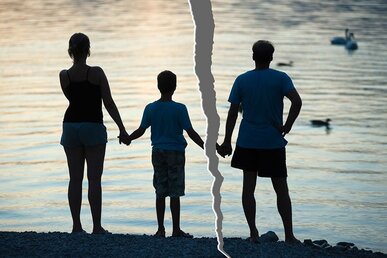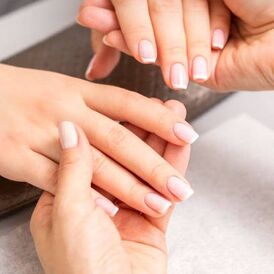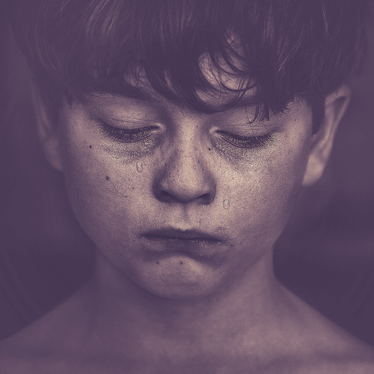Parent Estrangement: How To Cope After Going No-Contact Breaking up with parents. It may sound weird to some, but yes, indeed, there is a a type of breakup from our parents, and it is called parental estrangement. It happens when the adult child decides to cut off from their parents, or from one of the parents. Of course, this usually occurs after long years of efforts for reconciliation and of trying to bridge the differences. When all these efforts are not successful, parental estrangement seems to be the only solution for these adult children. In this article, we will discuss what parental estrangement is, what causes it, and how to cope if you have estranged yourself from your parent(s).
0 Comments
How To Raise a Compassionate Child: 5 Strategies for Parents “We are responsible for the outcome of our children”. Setting aside genetic influences, much of how a child grows up is influenced by the teachings of their parents. In a sense, it is the responsibility of a parent to contribute- as much as they can- to their child’s development. One such teaching of great importance to the development of a child is developing compassion. What is parental burnout? 3 Symptoms + Tips for parents To be honest, parenting is really hard work. Imagine what would happen if parenting conditions were actual working conditions: waking up in the middle of the night because your boss needs you to deliver a project "right here, right now." Or imagine that your boss is satisfied or unsatisfied with your work but in an unpredictable way. One day they say, “Well, I like what you're doing”, and the next day “I hate it and you're not trying enough!" - imagine working long hours with no salary and actually not knowing what your time schedule or the deadline of a project is. So, if we put this whole parenting situation into a different context and compare it with actual working conditions, it is huge and, maybe at some points, very inhuman. What Self-Care Is and Isn't: A Guide for Mothers In a world where self-care is often misconstrued as indulgence or self-centeredness, it's crucial to recognize the unique challenges that mothers face when it comes to prioritizing their well-being. Self-care is not simply about getting your nails done; it encompasses a comprehensive approach to nurturing physical, mental, and emotional health. In this blog post, we will delve into the profound impact of true self-care, specifically addressing the difficulties and importance of self-care for mothers. By dispelling misconceptions and offering practical strategies, we will empower mothers to embrace self-care as an essential tool for their own well-being and the well-being of their families. Join us as we explore the authentic essence of self-care and embark on a transformative journey of self-renewal, tailored especially for mothers. Self-Care for Mothers: Your Motherhood Guide We hear this term a lot these days. It is bounded around as a reminder to look after ourselves, to not let us take on too much, to take time out to nurture our needs. I am totally brought into the importance of this, especially as a mom. However, as a mom I find it difficult to commit to this choice and way of looking out for my own well-being. There is always something that we think is more important, which seems ridiculous as what could be more important than looking after yourself! What to Expect When You Are Expecting and Beyond So imagine, it's early morning and you are waiting for some life-changing test results. You have been waiting a while to receive these results, so you are very eager to know the outcome. You may, or may not fully realise it at first, but these results will shape the way you will live your life in the future. These results will influence yourself, your partner, family, friends, your work life, how you travel, how you eat and drink, and generally how you experience your daily life. You wait a few more minutes and the results are clear, they are positive. Congratulations you are pregnant!  It is definitely old-school practice. Our parents did it, their parents did it to them. It was* considered one of the "top" parenting styles, in order to bring up disciplined and respectful children. Nothing could have prepared us for the massive impact we would see nowadays on adults who have been spanked when children. No one could have foreseen the trauma it caused and the shame, the sadness and the disgrace it brought along. *I say "was" because I prefer to hope that this practice belongs to the past. It horrifies me to think that some cultures or sub-cultures still believe in this practice. Setting Boundaries with Children - A Coach Explains Boundaries: many parents struggle with this. You are not alone and you are completely normal! Learning how to set healthy boundaries with your children is not only beneficial for you, it teaches invaluable lessons to your child. This way, they will learn how to appropriately set boundaries and foster healthy, respectful and loving relationships with others.  Käthe Kollwitz, "Mother with child" Käthe Kollwitz, "Mother with child" The "Good Enough" mother is the one... ...who doesn't need to be perfect, who doesn't judge others for not being perfect and who teaches her child the beauty not being perfect and of being different among people. And therefore she takes a lot of (perfectionism) stress off her child's shoulder. ...who accepts the love that her child feels for her, but who also equally accepts all the other feelings that may come from the child, even anger or rejection. ...who admits that she has feelings of unconditional love for her child, but also acknowledges that there will be moments in everyday life when she will be experiencing more negative and overwhelming feelings. She is well aware that these uncomfortable, conflicting feelings cannot erase or even diminish her loving side.  Children understand everything they hear and see around them. Probably not in the way we adults perceive reality around us, but in their own unique way. And when they hear the news, the shocking, terrible news on the TV, they get the feeling that something bad is happening, or is going to happen (even if they don't understand the details of it). And they are scared. Terrified. And they don't feel safe anymore. Especially when they see their own parents feeling the same way, they feel helpless. Children sometimes lack perspective of the world around them. They hear about something that happened in India while they live in Oslo, and they feel that this is happening ...next door. They cannot understand how big the world is or how far from them is what happened. They even think that if they move to another house, they will feel safe again. Listen and attend to their need: safety. When perfectionism runs in the family It is quite common, although worrying, to see children or teenagers trapped in a negative self-talk about their achievements ("I am not good enough", "I always fail", "I should have tried more"), their performance ("I am so stupid", "Why others always get better grades than me?"), their popularity ("I have no friends", "I will be forever alone", "I feel like a burden to my friends") or their appearance ("I am so fat", I have ugly face", "No one likes me"). Sooner or later, they start being less sociable, they spend more time in their room, their eating habits change, they are less cheerful and more sad, they get easily irritated, they take everything more personally.  Children often feel or are really helpless when their parents get divorced. This is a very emotional time for parents and children become part of the conflict, since each parent individually decides what is in the interest of the children according to their own beliefs. Most of the parents continue to care for their children and maintain a civilized, if not friendly, relationship with the person with whom they are separated for the rest of their lives. For those who cannot keep that kind of relationship with their ex-spouse, it seems that children have much to say about it. In case that they tell you what they think, it is a good idea to listen carefully of some words of wisdom they have to offer. Here are some examples: Children do not want: ... To see their parents arguing. It makes them feel bad about themselves. |
Therapy |
|
